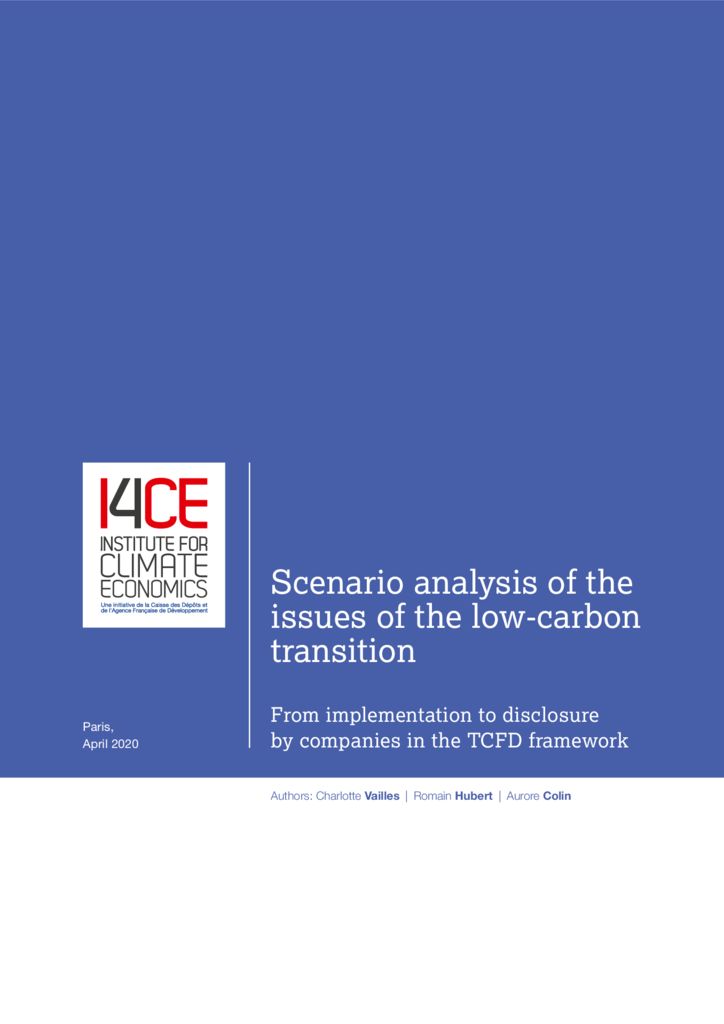Scenario analysis of the issues of the low-carbon transition
From implementation to disclosure by companies in the TCFD framework
The transition to a low-carbon economy represents risks and opportunities for companies. Indeed, far-reaching changes are expected in socio-economic systems, with uncertainties about their timing and magnitude, and their economic and financial consequences. In this context, forward-looking methods –in particular scenario analysis – are very useful to companies to inform strategic thinking and planning processes. In 2017, the TCFD (Task Force on Climate-related Financial Disclosures) published its recommendations on the integration of climate-related risks and opportunities: it recommends in particular that companies should use scenario analysis for strategic purposes, and disclose elements of these analyses in order to facilitate the incorporation of climate-related issues by the financial system.
Although some companies have been using forward-looking scenario analysis for decades in their strategic thinking, the widespread application of such methods to climate-related issues presents difficulties. Moreover, precisions are expected on the information required by financial companies, and this disclosure raises confidentiality issues.
The goal of this guide is therefore to support non-financial companies in:
- the forward-looking analysis of the strategic issues of the low-carbon transition,
- and in their disclosure to financial stakeholders, in reference to the TCFD
Scenario analysis requires developing an in-depth knowledge of the company and exploring the dynamics of its changing environment. Numerous resources – methods and tools, literature – presented in this report are available to companies and can support them in the implementation of this process.
In addition, this report suggests ways in which companies can provide financial actors with useful information on their scenario analysis approach, while overcoming the issue of confidentiality, illustrated by extracts from voluntary reporting.
Discover our video: Why is scenario analysis useful in the context of the low-carbon transition ?
Charlotte Vailles from I4CE explains the importance for companies to perform this analysis and how to do it:
Acknowledgements
This publication is part of a project financed by Climate-KIC aimed at facilitating the use of scenarios by companies to anticipate the risks and opportunities of the transition to a low-carbon economy, in connection with the TCFD recommendations.




